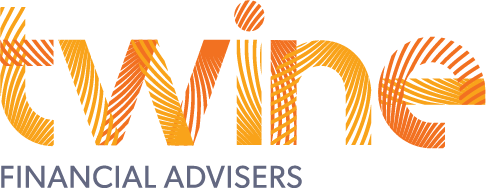1. Before You Start: Know your Borrowing Power
What is a Pre-approval?
A pre-approval is a document from the bank which confirms how much you are allowed to borrow. Generally, pre-approvals last for 3 months, but it can be extended for an additional 3 months. If you are purchasing a new build, the pre-approval may be extended for an additional 12 months.
You will need a pre-approval if you’re planning to bid at an auction.
Why do I need a pre-approval before I place an offer?
By getting a pre-approval before you start house hunting, you’ll know precisely how much you can spend so you don’t waste time looking at an open home that is out of your price range.
When you’ve found a property that you’d like to make an offer on, knowing your budget and having a conditional pre-approval with the bank means that you can move quickly to make an offer.
Having your finances sorted shows the vendor you are a serious buyer, as finance is the main issue for many buyers. It gives you a competitive advantage over other buyers.
How much can I borrow to buy my first home?
Banks want to make sure you can keep up with your loan repayments and still have enough cash leftover to live your life and deal with future uncertainties.
Two factors impacts how much you can borrow;
Your Deposit:
- Generally, lenders will lend up to 80% of the value of the property. Which means you’ll need at least 20% deposit.
- If you have less than 20% deposit, then you’ll be considered a low deposit borrower. The bank may charge you additional fees or interest called a Low Equity Margin (LEM) and Low Equity Fee (LEF). These can range between 0.25%-2% depending on the level of your deposit.
Your Serviceability:
- Lenders will assess whether you have enough cash leftover from your income, after taking away your living expenses and other debts. This is to ensure you will be able to continue to meet your loan repayments in case of future uncertainties like a reduction in income or increased interest rates. Each lender has their own way of calculating this.
How can I improve my borrowing capacity?
Saving up for a 10% deposit for your first home can be difficult, let alone a 20%. Here are some tips on how you can save up and build your deposit fast.
- Talk to a Mortgage Adviser – talk to us so we can help you calculate how much you can borrow and how much more you need to save up (if required).
- Budget and save up for a larger deposit – Having a higher deposit can positively increase your borrowing capacity, it also shows to the lender that you have excellent savings habits. Consider family gifting and seek advice on how to do so efficiently.
- Family Gifts and other family assistance – Contributions from your family can make a huge difference towards building your deposit. If you can show that you’ve saved up 5% of the deposit yourself (this can include your KiwiSaver) the banks won’t mind where the rest of the 15% comes from (as long as it’s not another loan). Family can help by providing:
- a Gift
- a Deed of Debt
- Providing a Guarantee
- Parents Buy the Property and rent it back to the kids
- You may be eligible for Kāinga Ora’s:
- First Home Grant
- First Home Loan
- Keep your credit card limits low – Lenders look at your credit card limits, not the balances in your credit cards. So either cancel some of your credit cards or reduce the limits. We can advise you whether your credit card limit is substantially hurting your serviceability.
- Pay off your short-term debts – Car loans, personal loans and credit card debts are considered “dumb debts”. Paying these down isn’t as easy as getting into debt. But with a plan, dedication and discipline it can be done. If you have credit cards or loans that you’re paying interest on, you should pay these off first as interest rates can range from 12-20% – the longer the debt gets unpaid, the more it will slow down from paying it off. If you have less than 20% deposit to purchase your home, the bank will require you to not have any short-term debts. Talk to us to see how you can consolidate your debt to one manageable loans and repay it faster. It’s best to pay these debts first before applying for a home loan.
Can I use my KiwiSaver to purchase my first home?
Yes! As long as you’ve been a member of KiwiSaver for 3 years, you can withdraw some of your KiwiSaver to purchase your first home.
You can withdraw as much as you want, however, the minimum balance must be $1,000 in your KiwiSaver account.
You must also live in the house, so you can’t use your KiwiSaver to purchase an investment property.
You can withdraw: your contributions, employer’s contributions, the government contribution, interest you’ve earned and fee subsidies (if any).
When do I apply to withdraw my KiwiSaver?
Contact your KiwiSaver provider or complying fund provider to apply for a withdrawal once your conditional offer has been accepted.
The process can take up to 10 working days and sometimes there can be delays.
You can use your KiwiSaver to either fund your upfront deposit or at the point of settlement. Most people use their own cash savings to pay for the deposit and withdraw their KiwiSaver to use as part of their final settlement.
If you still don’t have your KiwiSaver withdrawn before settlement, you won’t be able to use it. So make sure you allow enough time to start the withdrawal process before your settlement date to avoid any stress.
2. House Hunting
What are the different types of home ownership?
There are 4 main types of property ownership in NZ and each of these types holds different rights, responsibilities and restrictions for the owner.
For any type of property, we recommend that you ask your solicitor to review the property’s records (a.k.a Certificate of Title). This certificate shows the property’s legal description, details of ownership, rights, responsibilities and restrictions of the owner.
- Freehold (Fee Simple) – You own both the house and land.
- Leasehold – You only own the building but not the land, and you’ll have to pay lease annually for the land. There are two types of leasehold.
Firstly, the Maori and Church leaseholds – these have been around longer and have been priced consistently so the risk is lower.
Then there’s the Commercial Leasehold, apartments are classified as this and they tend to be riskier as the first few years of owning the apartment the lease cost remains low but the lease cost could increase up to 100% at the next ground rent review date. Generally, Banks tend to lend a lot less towards are leasehold property than to a freehold property. The most important thing to consider for Leasehold titles:- When and how long until the next rent review?
- How much will the rent increase by?
- Cross Lease – In 1970-1980, this was a common way to subdivide properties, basically you own a share of the freehold title. Some restrictions may pose on a cross lease title as you’ll need consent from your neighbors before making any changes/renovations to your property. Although it may be uncommon, we recommend this title to be reviewed by your lawyer.
- Strata or Unit Title – Most apartments, townhouses and units are on strata or unit title as it is a way to assign ownership of the unit and the ownership of the common area. There will most like be a Body Corporate fee associated with this title, as the fee will be used to maintain and upkeep the common areas and services and also building insurance.
What is LIM Report?
Land Information Memorandum (LIM) report summarises all the information about the roads, flooding, land, rates and resource planning consents. You can get a LIM report through your local council for a fee (around $400).
Sometimes, your real estate agent may already have a copy of the LIM report and Certificate of Title. Otherwise, you can request your solicitor to order it for you.
Do I need to do a Building Inspection for each house?
It costs around $700-900 to get a professional builder to inspect the building and provide a building report.
It’s a good idea to complete a building inspection, especially if it’s a older house so you’ll know the condition of the house. However, you can include in your offer subject to a satisfactory building inspection. As you don’t want to spend money on a building inspection if your offer hasn’t been accepted by the vendor.
If you’re participating in an auction, you’ll have to do a building inspection prior to bidding at the auction.
3. Making an Offer on your First Home
How much should I offer?
You are the market, so place an offer that you think is fair. Use resources like homes.co.nz to research recent sales in the area and determine a fair and reasonable price. You need to find comparable properties, so look at the number of bedrooms, size of the property and proximity to amenities to determine its comparability.
Do I need a lawyer to review the Sale & Purchase Agreement before I place an offer?
We strongly recommend you seek advice from a lawyer to review the Sale & Purchase Agreement as it can help you understand the property and terms before you make the offer, especially if you’re making your first ever offer.
Your lawyer can also provide advice on the types of conditions to include in your offer that may help you negotiate the property.
For your subsequent offers, you can place an offer and have your lawyer review the Sale & Purchase Agreement once the offer is accepted, however, you will need to have a water-tight due diligence clause included in your offer.
What is a Conditional Offer?
A conditional offer includes specific terms to be met before the sale is finalized. Common conditions include a satisfactory building report, finance, insurance, sale of another property, due diligence clause.
What is an Unconditional Offer?
An unconditional offer has no conditions and commits you to purchasing the property. While it’s attractive to vendors, it poses a risk to buyers, as you cannot back out if issues arise later.
Why do I need to get the bank to validate the property?
When you are ready to place an offer, send the draft Sale & Purchase Agreement to your mortgage adviser. They can validate the property with the bank to ensure it meets the bank’s criteria. You don’t want to be in a situation where your offer is accepted but the bank rejects your property (e.g. because of unconsented works, the type of property, whether it needs lots of repairs and maintenance).
The bank may require you to get further documentations such as a Registered Valuation or Building Inspection. Generally, new builds require an Registered Valuation, but older properties don’t unless your offer is outside of the band of the banks view on the offer. Banks use an e-valuation model with a statistical confidence rating. Generally, only highly unusual properties need a Registered Valuation.
Can I withdraw an offer I just made?
You can withdraw the offer you just made as long as the vendor still has not accepted your offer.
Make sure to withdraw your offer in writing to the real estate agent so that they can communicate this straight to the vendor.
What do I need to get sorted before I start bidding at an auction?
Before Auction Day
- Have your finance approved and be ready with your deposit on the auction day. You won’t be able to use your
Kiwisaver towards the deposit if you are buying through an auction, but instead your Kiwisaver withdrawal will be used towards paying the loan on settlement day. - Do your due-diligence beforehand and learn as much as you can about the property, such as getting an inspection or valuation. Properties sold through auctions are not subject to any conditions.
- Seek legal advice to help you understand the information before participating in the auction.
On Auction Day
- Register your bid so you can start bidding on the property.
- Have your deposit cheque ready with you on the day.
- If you win, sign the Sale & Purchase Agreement.
4. Settling & Moving In
What happens on Settlement Day?
- Your lawyer pays the remaining balance of the property on your behalf.
- Once the payment has cleared, you can collect your keys from the real estate agent or the vendor’s lawyer.
- Seller’s lawyer releases document to your lawyer and arrange the transfer of ownership. Your details and the details of your bank will be recorded on the record of title.
When do we discuss my loan structure and interest rates?
Only once your offer has been accepted and you have fulfilled all your conditions. The final step is to have a separate Loan Structure Meeting with your Twine adviser to discuss the interest rates offered by the bank, cashback (if any) and your recommended loan structure.
If you plan to have kids, change careers, or travel overseas – it’s important to plan and work out how this will impact your finances. This is the time to let your Twine adviser know so they can help you plan for these changes and make sure your loans are structured correctly to allow for future flexibility.
What can go wrong on settlement day?
Most of the time settlement day goes smoothly, but like all things in life, sometimes things just don’t go as planned and settlement can get delayed.
- If you’re moving in on settlement day, the seller may not have moved out completely. We recommend planning to move in at least a day later, if possible.
- Your moving truck arrives late. Make sure you hire a reputable rental/moving company with excellent Google reviews and hire for the entire day. Don’t hire the company if they have other jobs scheduled on the morning of your move in day, as their previous job can create delays for you. (Trust us on this, we’ve learnt it the hard way!)
- There’s some damage to the property (e.g. broken windows or missing keys).
In all these circumstances, talk to your lawyer in the first instance so that they can communicate with the seller’s lawyer and negotiate a work around.
What can go wrong on settlement day?
Most of the time settlement day goes smoothly, but like all things in life, sometimes things just don’t go as planned and settlement can get delayed.
- If you’re moving in on settlement day, the seller may not have moved out completely. We recommend planning to move in at least a day later, if possible.
- Your moving truck arrives late. Make sure you hire a reputable rental/moving company with excellent Google reviews and hire for the entire day. Don’t hire the company if they have other jobs scheduled on the morning of your move in day, as their previous job can create delays for you. (Trust us on this, we’ve learnt it the hard way!)
- There’s some damage to the property (e.g. broken windows or missing keys).
In all these circumstances, talk to your lawyer in the first instance so that they can communicate with the seller’s lawyer and negotiate a work around.
5. Managing your Loans
What should I do when my home loans are coming up for renewal?
Just leave it to us. We’ll send you a reminder 60 days out and book a refix meeting to review your financial goals, assess your full loan structure, and explore the best rates and terms. Refixing is part of our ongoing service, and often it’s a great time to consider restructuring, too. Before locking anything in, talk to a Twine adviser. We’ll help you make a smart, informed decision.



